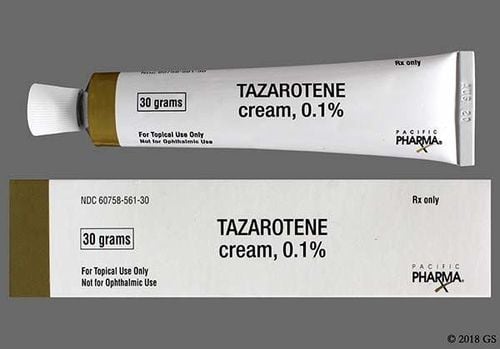This is an automatically translated article.
The article was professionally consulted by Specialist Doctor II Ho Viet Le Diem - General Internal Medicine - Department of Examination & Internal Medicine - Vinmec Central Park International General Hospital.Vitamin A is used in the treatment, control, prevention and improvement of diseases, eye-related syndromes, skin diseases,... However, vitamin A supplementation can also cause some adverse effects. unwanted side effects.
1. How much vitamin A is needed by the body?
Vitamin A is important for the eyes, immune system and helps prevent many different diseases. The amount of vitamin A provided to the body is mainly through food and vitamin supplements. The body's daily need for vitamin A is:Men: 3,000UI. Female: 2,300UI. Pregnant and lactating women: 3,000UI. Children: 2,000UI.

Vitamin A có nhiều tác dụng đối với cơ thể
Severe cases can lead to blindness. And advice for people with vitamin A deficiency is to supplement vitamin A from food. If the source of vitamin A from food does not meet the body's needs, parents can give vitamin A to the baby as prescribed by the doctor.
Dosage of vitamin A:
Children 6-11 months old: take 100,000 units. Children 12 months and older: take 200,000 units.
2. Side effects when taking vitamin A
Some side effects that may occur after children are given vitamin A are:Common:
Children vomiting, diarrhea, bloating, fontanel bulge. The child has local difficulty breathing, headache, swelling, itchy skin, swelling of the face or lips, allergies. These symptoms usually only last for 1-2 days and are not dangerous to the child's health.

Trẻ có thể bị tiêu chảy sau khi uống vitamin A
Increased risk of cardiovascular disease. Bleeding in the lungs, blurred vision, bone pain. Changes in immune function. Chronic hepatitis, liver scarring. Cough, fever, cracked nails, cracked lips. Decreased thyroid function. Hair loss, osteoporosis, skin pigmentation disorders. Jaundice.
3. Note when supplementing vitamin A for the body
Before taking vitamin A, users need to inform their doctor about the medicines they are using, their allergies, existing diseases and current health conditions such as pregnancy, impending surgery, ... to receive appropriate advice.
Không tự ý uống vitamin A khi chưa có chỉ định của bác sĩ
Please dial HOTLINE for more information or register for an appointment HERE. Download MyVinmec app to make appointments faster and to manage your bookings easily.













